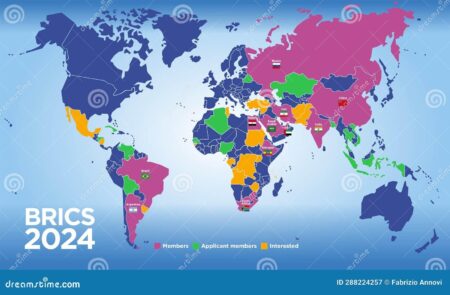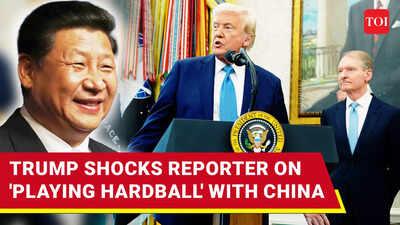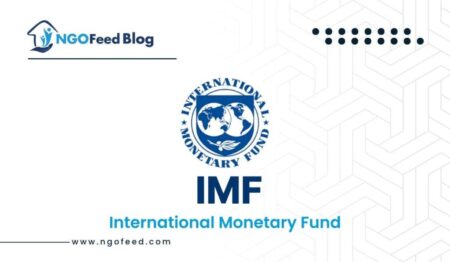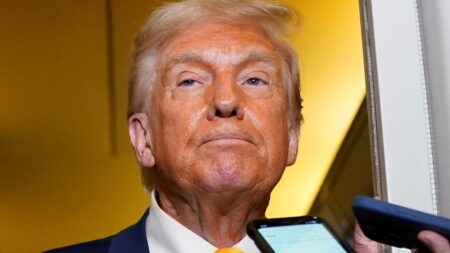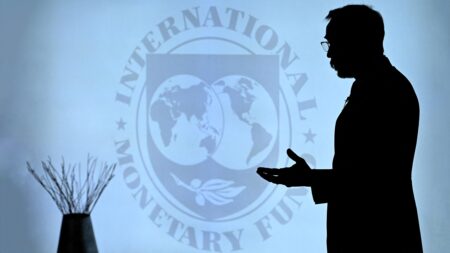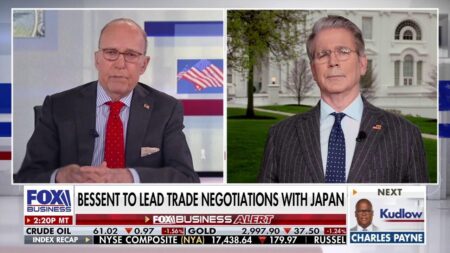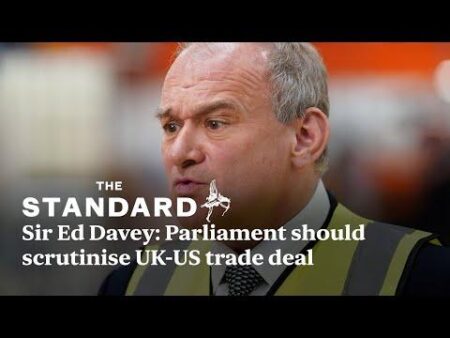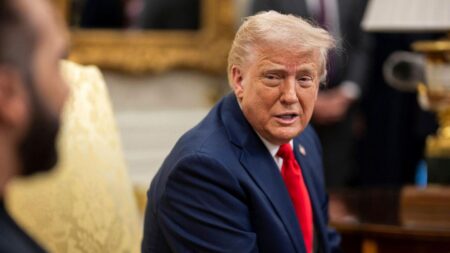In a lively back-and-forth, China took a jab at former President Trump’s tariffs as both countries delve into strategies to cushion the economic blow. With tensions still simmering, officials are actively considering various options to tackle the trade repercussions affecting their industries and consumers
Browsing: global economy
California has officially outpaced Japan, claiming the title of the world’s fourth-largest economy! This remarkable achievement is fueled by a thriving tech sector and relentless innovation. This transformation underscores the rising economic clout of U.S. states on the global stage, positioning California as an essential powerhouse in the world economy.
As pivotal trade discussions with the U.S. loom, UK Treasury chief James Reeves has taken a moment to address the concerns voiced by former President Trump about the state of the global economy. Reeves underscored that working together is essential to tackle our shared economic hurdles.
BRICS nations are embarking on an exciting new initiative to strengthen the global economy, as revealed by a Brazilian official. This groundbreaking mechanism is designed to boost financial collaboration among member countries, marking a strategic step towards amplifying their collective impact in international markets.
In an exciting development, U.S. Treasury Secretary Scott Bessent revealed that India is poised to become the first nation to ink a landmark trade agreement with the United States. This groundbreaking deal promises to strengthen economic connections and elevate collaboration between these two dynamic countries.
In a pivotal meeting, finance leaders from Japan and the United States gathered to tackle the pressing issue of fluctuating currency rates. These discussions are not just about numbers; they aim to enhance economic stability and strengthen bilateral relations in the face of growing global financial uncertainties.
In light of President Trump’s attempts to smooth over trade tensions, a wave of skepticism has swept across China. Analysts and officials alike are voicing their doubts, casting a critical eye on the sincerity of these gestures. With tariffs still in place and economic frictions simmering, many are left wondering if this olive branch is genuine or just another political maneuver.
France has raised a red flag, cautioning that dismissing Federal Reserve Chair Jerome Powell could spell trouble for the U.S. dollar and shake up the economy. French economic officials warn that this drastic step might undermine market confidence and trigger financial upheaval.
Treasury Secretary Bessent issued a stark warning about the ongoing trade war with China, declaring it “not sustainable.” She stressed the urgent need for a collaborative approach to tackle tariff disputes. Her comments resonate amid rising worries about economic stability and the state of international relations.
The International Monetary Fund has adjusted its growth forecast for the UK, reflecting the persistent influence of Trump’s tariffs on the global economy. This revised outlook raises alarms about escalating trade tensions and their far-reaching consequences for economic stability.
In a bold statement aimed squarely at China, former President Donald Trump has accused the nation of “cheating” on tariff agreements. His comments arrive during a time of heightened trade tensions, as he calls for more robust actions to safeguard American industries from unfair competition.
Spain’s Prime Minister has urged Washington to rethink what he labels as “nonsense” tariffs that are straining trade relations. He highlighted the importance of collaboration and open dialogue to address the ongoing trade tensions that are impacting both economies.
The IMF and World Bank have greenlit exciting new bailout packages for Argentina, designed to bolster its economy in the face of persistent inflation challenges. These vital measures are set to offer essential support as the nation charts a course through financial uncertainty.
US Treasury’s Bessent has voiced strong support for Argentina’s ambitious economic reforms, highlighting their crucial role in stabilizing the nation as worries about China’s expanding influence in the region mount. This initiative not only reflects a commitment to Argentina’s progress but also aligns seamlessly with broader U.S. interests in bolstering economic partnerships across Latin America.
Germany must take a fresh look at its competitiveness strategies as global tensions rise. With the geopolitical landscape evolving rapidly, there’s an urgent call for innovative policies and robust economic frameworks to successfully navigate this increasingly challenging world
The U.S. is strategically using tariff negotiations to economically isolate China, as highlighted in a recent report by The Wall Street Journal. This bold approach underscores the nation’s commitment to countering China’s growing influence in global trade while simultaneously reinforcing alliances with vital partners around the world
In a recent statement, Senator JD Vance expressed optimism about the prospects of a UK-U.S. trade deal, highlighting the robust connections and common goals that unite the two nations. He pointed out that former President Trump holds a deep-seated fondness for Britain, a sentiment that could significantly enhance the negotiation process
The Bank of Canada has decided to maintain its key interest rate at 2.75%, citing concerns that escalating trade tensions could lead to a potential recession. The decision reflects ongoing economic uncertainty amid global trade disputes.
In the escalating U.S.-China trade war, students and tourists may find themselves caught in the crossfire. As tensions rise, educational exchanges and travel are at risk, potentially impacting thousands and straining cultural ties between the two nations.
In a bold move to ease rising trade tensions, President Trump has called on China to unveil a fresh tariff proposal. This initiative emerges as both countries navigate a web of disputes that are shaking up global markets. Experts believe that any progress in this direction could hint at a potential warming of relations.




